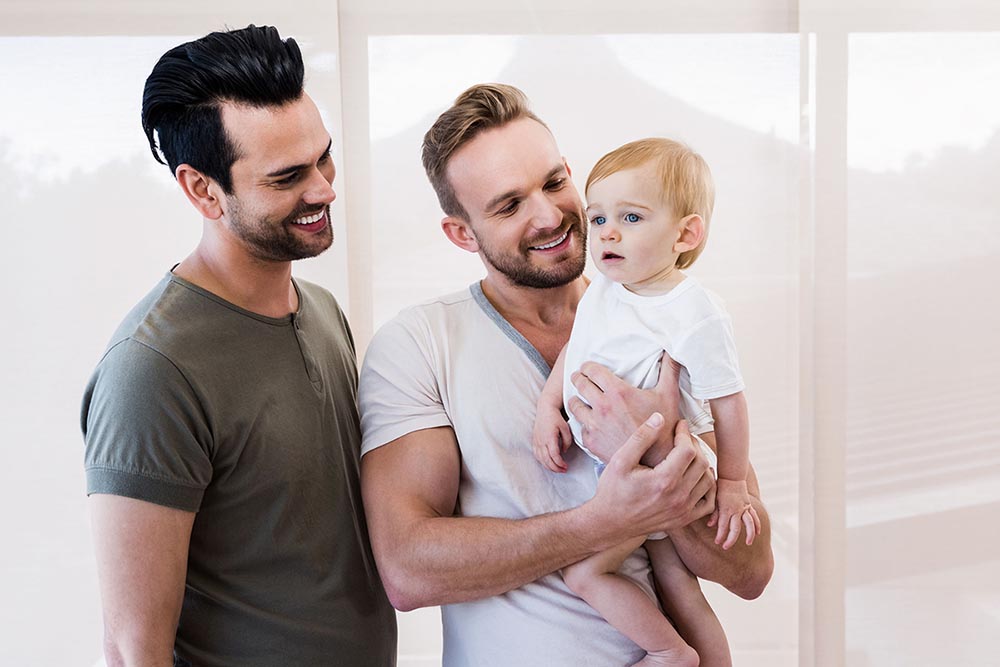It’s no secret that there are so many stable and loving people who want to have children but aren’t able to. That’s especially true within the LGBTQ+ community – where many rely on adoption or LGBT surrogacy to expand their families. By deciding to become a surrogate, you have the unique experience of helping to bring those dreams to life.
As communities across the globe celebrate Pride Month, we thought it was an ideal time to highlight the important role of LGBT surrogacy and the overwhelming joy this journey brings to both surrogates and intended parents.
Why Some Surrogates Prioritize Carrying for LGBTQ+ Intended Parents
First and foremost, becoming a gestational surrogate for an LGBTQ+ individual or couple is no different than it would be for a heterosexual and/or cisgender individual or couple. Every intended parent is unique – with fears, hopes, and expectations that stem from their own life journeys – and that’s true regardless of sexuality or gender identity.
However, for many surrogates, partnering with LGBTQ+ intended parents adds yet another layer of purpose and fulfillment to their surrogacy journey.
Supporting Equality – In many countries across the globe and states across the U.S., same-sex couples and LGBTQ+ people have limited options for becoming parents. Some surrogates want to prioritize intended parents who identify as LGBTQ+ on principle – because no one should be denied the option of becoming a parent based on discriminatory laws or beliefs.
Creating Hope – Especially within the gay community where biology prevents either partner from the possibility of carrying a baby, LGBT surrogacy is often the only opportunity for the intended parent(s) to be biologically connected to their child. Some surrogates find an extra dose of joy in giving hope to those who thought they’d never have the opportunity to see themselves in their child’s eyes.
Understanding the Embryo’s Genetic Composition with LGBT Surrogacy
There are two types of surrogacy: traditional and gestational. Today, gestational surrogacy is most common – where the gestational carrier (aka the surrogate) has an embryo implanted in her uterus and has no genetic connection to the fetus.
Surrogacy, by its very nature, varies greatly depending on the needs of all involved parties. This means that there’s no one-size-fits-all approach for bringing together all of the necessary elements. Often, an egg and/or sperm donor is needed. The donor may be someone close to the intended parent(s), or, like you, they may be a stranger who is proud to help others bring the dream of parenthood to life.
For gay couples, it’s relatively common to use one partner’s sperm and an egg donation from a biological relative of the other partner (such as his sister) – so that both partners have a genetic bond with the baby.
Learn More About the Many Benefits of Becoming a Surrogate
Founded in 1990, Surrogate Parenting Services (SPS) is a full-service surrogacy program that offers both parties an exceptionally supportive environment throughout the surrogacy relationship. We’re passionate about creating ideal matches between surrogates and intended parents, so the journey is fulfilling for both sides and the future child is brought into this world in the best possible circumstances.
Learn more about our Surrogacy Program online or by calling (949) 363-9525.










Keep In Touch